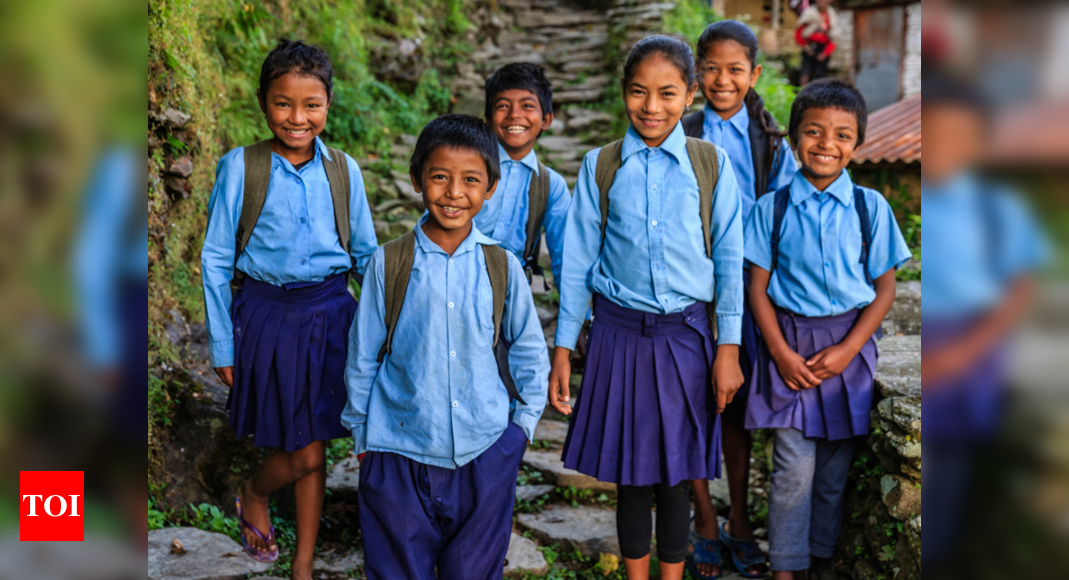National Deworming Day: Doctor approved ways to keep your child safe from worms – Times of India
As per official data, more than 836 million children are at risk of parasitic worm infections worldwide. According to the World Health Organization (WHO) 241 million children between the ages of 1 and 14 years are at risk of parasitic intestinal worms in India, also known as Soil-Transmitted Helminths (STH).
On this day, children between the ages of 1 and 19 receive treatment for intestinal worms from teachers at all government and government-aided schools and from Anganwadi Workers.
The first round of national deworming day was conducted in February 2015 and 8.9 crore children were administered the deworming tablet across 11 states/UTs by achieving 85% coverage. Thereafter 88%, 77%, 88% children were covered against the set targets in February 2016, August 2016 and February & August 2017 rounds of national deworming day respectively. 26.68 crore children have been administered albendazole till February 2018, and more than 114 crore doses of albendazole were administered to children 1-19 years, since 2015, says a government data.
Intestinal worms are parasites which stay and survive in the human intestines. These parasites consume the nutrients from the food meant for the human body. Consequently, the infected individual suffers from malnutrition, loss of blood, and this also affects the overall growth of the individual.
These parasites are transmitted to the human body through exposure to the infected soil following unhygienic practices. Improper disposal of faecal matters provides these worms a breeding ground and unhygienic sanitary practices makes one prone to these worms.
One should always wash hands before and after eating and using the toilet. Children should always be told to use slippers while using sanitary latrines. Open defecation should be discouraged and people should use closed latrines with proper disposal systems.
In order to stop the worm from entering the body one should always drink clean water, eat properly cooked food, avoid eating raw food, wash vegetables and fruits before cooking, and should be extra careful while washing vegetables for salads.
Children should be taught to follow hygiene practices. They should be asked to keep their nails trimmed and clean. Long nails often serve a harboring place to all sorts of pathogens that cause infectious disease.
Worms can cause anemia and malnourishment, which negatively affect the mental and physical development of the child. Malnourished and anemic children are often underweight and have stunted growth. Children with heavy infections are always sick and fatigued and find it hard to concentrate at school or attend school at all.
“Worms are mostly there in the small intestine but few of them are there in the large intestine as well. If a child is pale looking and has anemia which doesn’t get explained by dietary intake, or child is not gaining weight, or having frequent abdominal pain or peri anal itching, one should treat them. The good thing is that they are both treatable and preventable by giving 2 doses of albendazole 2 weeks apart which should be repeated every 6 monthly,” says Dr. Rajiv Chhabra, Chief Pediatrician, Artemis Hospitals & Daffodils by Artemis.
A child treated with deworming medicines shows better growth, is more resistant to other infections, is more active in schools and also attends school regularly.
To treat worms, the government recommends Albendazole. The recommended dosage for children between the ages of 2 and 19 is 1 tablet (400 mg) and for children between the ages of 1 and 2 is half tablet (200 mg).
In addition to this, Ayurvedic treatments are also available to remove the worms out of the body. “Food like ajwain (caraway), black pepper (kaali mirch), asafoetida (hing), black salt (kala namak), dry ginger, garlic, turmeric are good for deworming. Take ajwain mixed with a pinch of salt on empty stomach for a week to eliminate worms. Having the concoction of dry ginger (adrak), black pepper (kaali mirch), pippali (Piper longum) and honey for 15 days also reduces worms. Tulsi leaf juice with honey or peach juice and honey is also helpful,” says Dr. Partap Chauhan, Director- Jiva Ayurveda.
For all the latest lifestyle News Click Here

